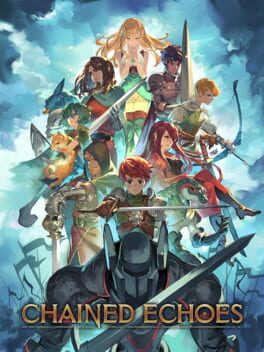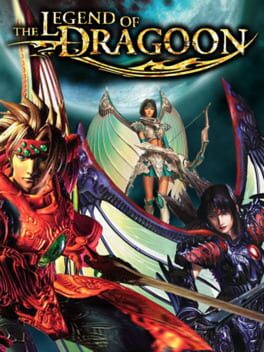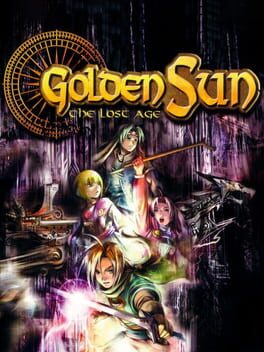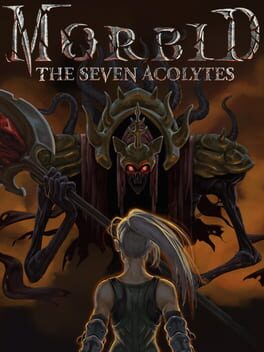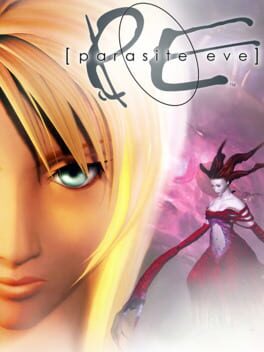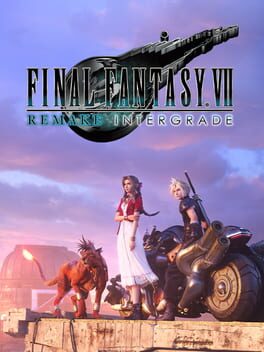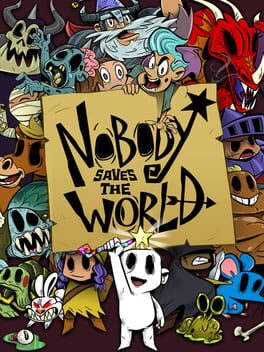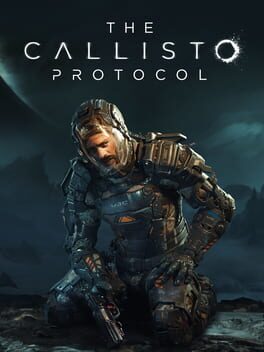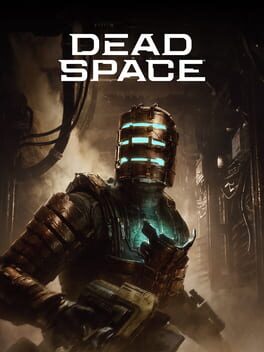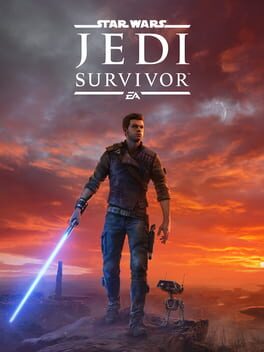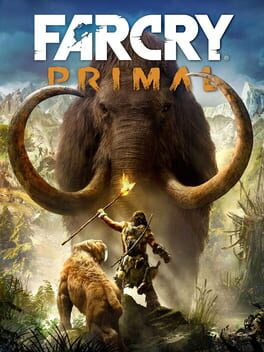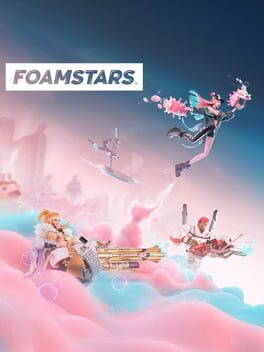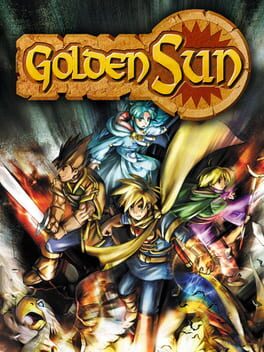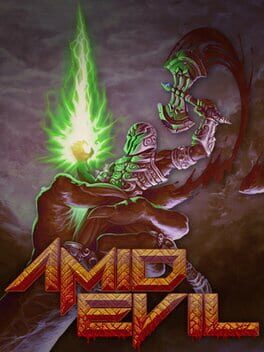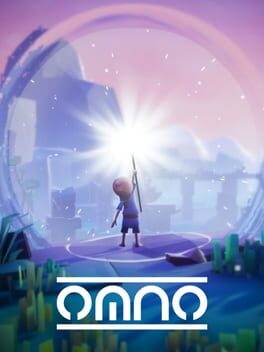2022
shishishi
This one really does everything right, from story, world building, gameplay and combat. The music hits all the right notes, playing on nostalgia while still giving something fresh. The characters are genuine and their interactions help to fully flesh out the story.
Really cannot recommended this strongly enough for fans of the genre. Being able to play Chained Echoes and Sea of Stars in the same year has reignited not just my love of JRPGs but also kindled a true interest in indie games, something I historically have mostly ignored for the flashy big titles.
This one really does everything right, from story, world building, gameplay and combat. The music hits all the right notes, playing on nostalgia while still giving something fresh. The characters are genuine and their interactions help to fully flesh out the story.
Really cannot recommended this strongly enough for fans of the genre. Being able to play Chained Echoes and Sea of Stars in the same year has reignited not just my love of JRPGs but also kindled a true interest in indie games, something I historically have mostly ignored for the flashy big titles.
100% a game of its time, but still manages to shine through some really rough segments and gameplay.
There's a fan made PC port that fixes a lot of the jank, I'd recommend that for anyone with a large backlog as it can shave hours of loading screens, random battles, and slow text crawl from your playthrough.
There's a fan made PC port that fixes a lot of the jank, I'd recommend that for anyone with a large backlog as it can shave hours of loading screens, random battles, and slow text crawl from your playthrough.
A Lighter Shade of Souls
Morbid: The Seven Acolytes scratches the itch for a souls-like experience, but ditches the punishing difficulty. Developer admissions solidify this - it's not a true soulslike, but a more accessible adventure.
Familiar Horrors
The game embraces H.P. Lovecraft's influence with environments that ooze dread. Fishing villages and industrial cities become equally unsettling under Morbid's dark filter. Hunting down the seven titular Acolytes becomes your central quest, a simple yet functional premise. While the story itself fails to leave a lasting impression, the atmosphere effectively sets the stage.
Standard Combat without a Twist
Isometric combat feels familiar, offering the expected hack-and-slash experience. Character progression comes through blessings (think stat boosts) and skill points, a system that gets the job done without innovation. Weapon choices fall into familiar categories – bigger weapons for bigger damage, slower swings for heavier blows. Here's where the isometric perspective becomes a drawback. Many enemies and bosses rely on easily dodged horizontal attacks, making most encounters a breeze.
A Fun Detour, Not a Destination
While Morbid offers a solid 10 hours of entertainment, it lacks the ingenuity to truly stand out in the crowded genre. The overpowered consumables feel like a cheat code rather than a strategic element. Overall, it's a fun diversion, but forgettable.
The sequel, however, seems to address some shortcomings. If the changes are significant, I might be tempted to grab it... but only on a deep sale.
Morbid: The Seven Acolytes scratches the itch for a souls-like experience, but ditches the punishing difficulty. Developer admissions solidify this - it's not a true soulslike, but a more accessible adventure.
Familiar Horrors
The game embraces H.P. Lovecraft's influence with environments that ooze dread. Fishing villages and industrial cities become equally unsettling under Morbid's dark filter. Hunting down the seven titular Acolytes becomes your central quest, a simple yet functional premise. While the story itself fails to leave a lasting impression, the atmosphere effectively sets the stage.
Standard Combat without a Twist
Isometric combat feels familiar, offering the expected hack-and-slash experience. Character progression comes through blessings (think stat boosts) and skill points, a system that gets the job done without innovation. Weapon choices fall into familiar categories – bigger weapons for bigger damage, slower swings for heavier blows. Here's where the isometric perspective becomes a drawback. Many enemies and bosses rely on easily dodged horizontal attacks, making most encounters a breeze.
A Fun Detour, Not a Destination
While Morbid offers a solid 10 hours of entertainment, it lacks the ingenuity to truly stand out in the crowded genre. The overpowered consumables feel like a cheat code rather than a strategic element. Overall, it's a fun diversion, but forgettable.
The sequel, however, seems to address some shortcomings. If the changes are significant, I might be tempted to grab it... but only on a deep sale.
1998
A good start to what will be a great trilogy. Bit rough playing it right before Rebirth and after playing XVI, knowing how much more successful the combat is in those titles.
Still this is peak Final Fantasy writing, complete with loveable characters, story built tension and humor. Oh the humor! I love how they weren't afraid to even poke fun at themselves.
Still this is peak Final Fantasy writing, complete with loveable characters, story built tension and humor. Oh the humor! I love how they weren't afraid to even poke fun at themselves.
When I think of the Steamdeck, a game like Nobody Saves the World should always come to mind. This is an absolute gem of a 15hr dungeon crawler/action RPG that doesn't take itself serious, both in its story and its gameplay.
It's great that we have complex ARPG titles like Path of Exile, but it's also heart warming that we have easy to understand systems like the ones found in NStW. No armor, no items, no weapons. Just skills and talents. EXP? Get it through questing and using your skills and talents in certain ways! Such a simple idea, but the execution is perfection.
I'd put this on a must play list for fans of the genre, or anyone looking for their next pickup and go game on the device of their choice.
It's great that we have complex ARPG titles like Path of Exile, but it's also heart warming that we have easy to understand systems like the ones found in NStW. No armor, no items, no weapons. Just skills and talents. EXP? Get it through questing and using your skills and talents in certain ways! Such a simple idea, but the execution is perfection.
I'd put this on a must play list for fans of the genre, or anyone looking for their next pickup and go game on the device of their choice.
Callisoto Protocol is a game that faced harsh criticism at launch, and it seems that sentiment remains unchanged among many critics. My experience with the game, however, was more balanced. I found it to be an okay game overall, with an average quality that doesn't offer any particularly unique elements. But yes, this truly is "We-Have-Dead-Space-At-Home" level of plagiarism, or at least an attempt to borrow all of the good things that made us love that title.
The combat system works adequately in one-on-one encounters but becomes problematic when facing groups of enemies. The boss fights are notably underwhelming, relying on repetitive mechanics. The primary strategy involves dodging left or right and then shooting, which quickly becomes tedious and detracts from the challenge and excitement one would expect from a boss encounter. Lastly, too many stealth levels.
The narrative had potential, but its execution was flawed by too many improbable events. The protagonist experiences numerous setbacks, such as walkways and bridges collapsing just before reaching the goal. These repetitive and predictable incidents eventually diminished my engagement with the story.
I accessed the game through a PS Plus membership, which made it a "cost-free" experience for me. I spent over 11 hours playing on the maximum difficulty setting, which included a lot of game over screens. A lot.
Callisto Protocol is worth playing if you have access to it at a steep discount. However, it's not compelling enough to justify purchasing anywhere near full price. The game is a mixed bag with some functional aspects but ultimately lacks innovation and has several design flaws that hinder its overall enjoyment.
The combat system works adequately in one-on-one encounters but becomes problematic when facing groups of enemies. The boss fights are notably underwhelming, relying on repetitive mechanics. The primary strategy involves dodging left or right and then shooting, which quickly becomes tedious and detracts from the challenge and excitement one would expect from a boss encounter. Lastly, too many stealth levels.
The narrative had potential, but its execution was flawed by too many improbable events. The protagonist experiences numerous setbacks, such as walkways and bridges collapsing just before reaching the goal. These repetitive and predictable incidents eventually diminished my engagement with the story.
I accessed the game through a PS Plus membership, which made it a "cost-free" experience for me. I spent over 11 hours playing on the maximum difficulty setting, which included a lot of game over screens. A lot.
Callisto Protocol is worth playing if you have access to it at a steep discount. However, it's not compelling enough to justify purchasing anywhere near full price. The game is a mixed bag with some functional aspects but ultimately lacks innovation and has several design flaws that hinder its overall enjoyment.
2023
This right here? This is how you do a remake. The team stayed true the original while providing some twists and change ups, pulling in from the deeper lore of the animated film as well as sequels. Even though it did not deviate that much, it still felt like a whole new experience and can easily recommend this to fans of the genre.
Praise be to Altman!
Praise be to Altman!
2016
If you're a die-hard Far Cry fan craving more from the series, Far Cry Primal might scratch that itch, but for others, it might not hit the mark. Unlike its spin-off counterparts like Blood Dragon and New Dawn, Far Cry Primal feels like a step back, especially when sandwiched between Far Cry 4 and Far Cry 5.
The absence of guns in a Far Cry game is a notable departure, and it's felt keenly in the clunky combat mechanics. The reliance on bows and melee weapons leads to a repetitive gameplay loop that lacks the adrenaline rush of gunplay. The combat feels especially cumbersome on console, with a tight field of view exacerbating the confusion in melee encounters.
The open-world checklist formula, a staple of the series since Far Cry 3, continues here without much innovation. The world of Far Cry Primal doesn't offer much in terms of uniqueness or freshness compared to its predecessors. The story and characters also fail to leave a lasting impression, with most feeling flat and unremarkable.
However, Far Cry Primal does have its moments of enjoyment. The creature-taming mechanic adds a layer of excitement as predatory animals become your allies, with later creatures feeling downright overpowered. Watching your sabertooth tiger tear through an outpost is undeniably satisfying.
Technical issues mar the experience, with frequent crashes on the PS5 during fast travel. While progress wasn't lost, the interruptions were frustrating and indicative of potential issues with the game's compatibility with the console's SSD.
In conclusion, Far Cry Primal offers glimpses of primal delight but falls short of the expectations set by its predecessors and spin-off titles. Unless you're particularly drawn to the Stone Age setting or the creature-taming mechanic, it's hard to wholeheartedly recommend Far Cry Primal over other entries in the series.
The absence of guns in a Far Cry game is a notable departure, and it's felt keenly in the clunky combat mechanics. The reliance on bows and melee weapons leads to a repetitive gameplay loop that lacks the adrenaline rush of gunplay. The combat feels especially cumbersome on console, with a tight field of view exacerbating the confusion in melee encounters.
The open-world checklist formula, a staple of the series since Far Cry 3, continues here without much innovation. The world of Far Cry Primal doesn't offer much in terms of uniqueness or freshness compared to its predecessors. The story and characters also fail to leave a lasting impression, with most feeling flat and unremarkable.
However, Far Cry Primal does have its moments of enjoyment. The creature-taming mechanic adds a layer of excitement as predatory animals become your allies, with later creatures feeling downright overpowered. Watching your sabertooth tiger tear through an outpost is undeniably satisfying.
Technical issues mar the experience, with frequent crashes on the PS5 during fast travel. While progress wasn't lost, the interruptions were frustrating and indicative of potential issues with the game's compatibility with the console's SSD.
In conclusion, Far Cry Primal offers glimpses of primal delight but falls short of the expectations set by its predecessors and spin-off titles. Unless you're particularly drawn to the Stone Age setting or the creature-taming mechanic, it's hard to wholeheartedly recommend Far Cry Primal over other entries in the series.
2024
2001
2019
I will be upfront and say I played on Hard (didn't know there was a higher difficulty hidden away until after) so some of my thoughts might be skewed because of that.
The gameplay and combat felt fresh but turned sour and stale very quickly. I understand it's a throwback to shooters of old, but that shouldn't mean it has to play exactly like them. Many encounters I found myself either holding the S key while firing away or just circle strafing and chipping away at the monster's health.
There was a chance missed here to use the colors inherent in both the enemies and the weapons to inflict extra (or less) damage based on those 'elements.' Instead it felt often like 'use whatever weapon you have the most mana (ammo) for,' which never felt that great. I'm sure there is targeted limb/head damage but it truly didn't feel like it made much of a difference.
Am glad I stuck it out though as some of the later levels have such neat platforming segments and honestly some very cool boss fights. The final boss alone was very well done.
With so many more 'boomer shooters' in my steam library I'm going to dive into them and see if it's this game that's a one-off or if the genre maybe just isn't my cup of tea.
The gameplay and combat felt fresh but turned sour and stale very quickly. I understand it's a throwback to shooters of old, but that shouldn't mean it has to play exactly like them. Many encounters I found myself either holding the S key while firing away or just circle strafing and chipping away at the monster's health.
There was a chance missed here to use the colors inherent in both the enemies and the weapons to inflict extra (or less) damage based on those 'elements.' Instead it felt often like 'use whatever weapon you have the most mana (ammo) for,' which never felt that great. I'm sure there is targeted limb/head damage but it truly didn't feel like it made much of a difference.
Am glad I stuck it out though as some of the later levels have such neat platforming segments and honestly some very cool boss fights. The final boss alone was very well done.
With so many more 'boomer shooters' in my steam library I'm going to dive into them and see if it's this game that's a one-off or if the genre maybe just isn't my cup of tea.
2021
